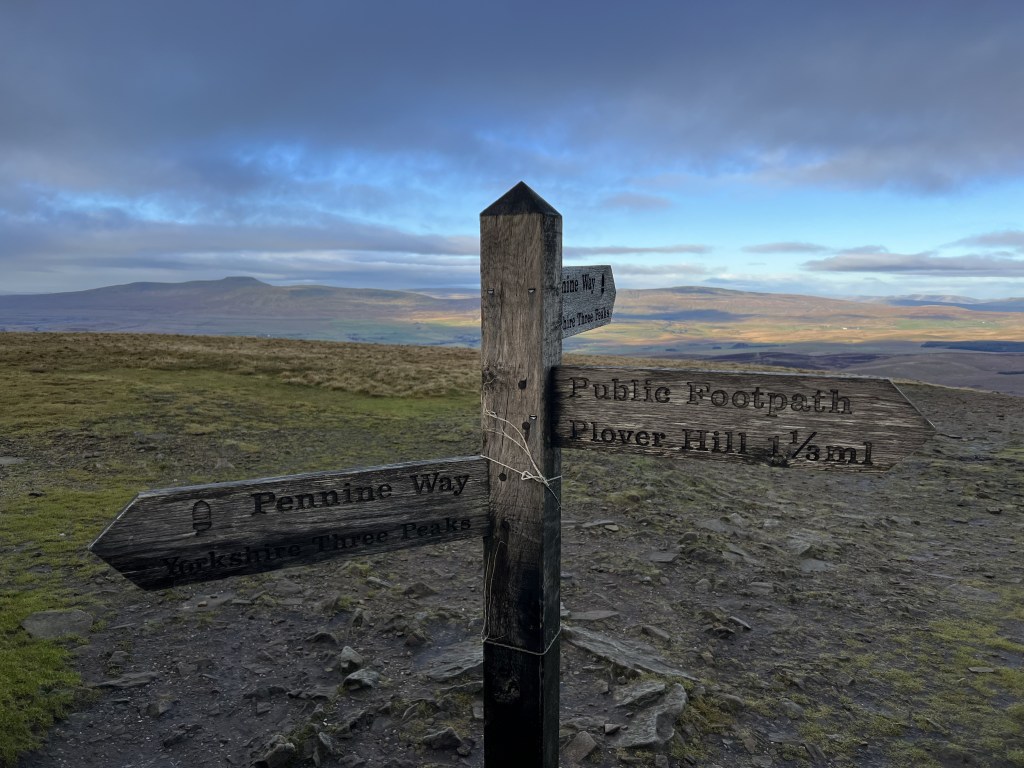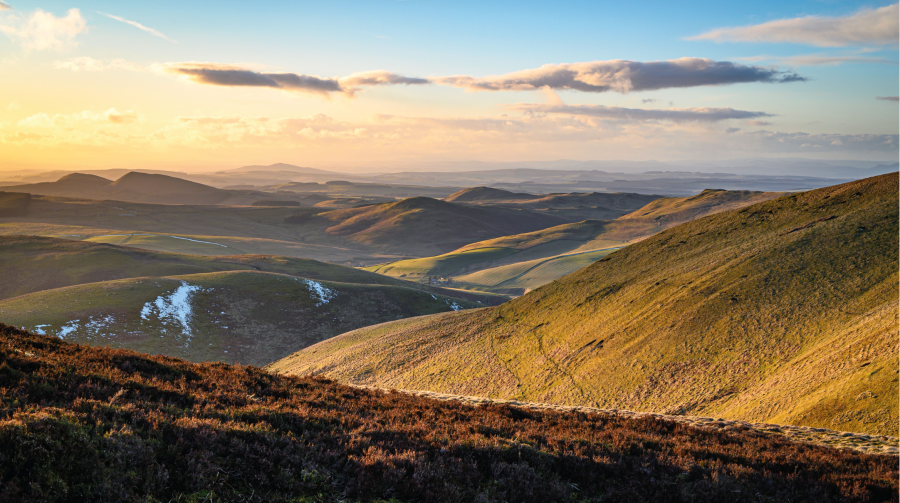On the 75th anniversary of the Act that established National Parks and National Trails, Mary-Ann Ochota seeks inspiration from a war-weary association of walkers who stuck steadfastly to their vision even when the grind was grim.
It’s a bit grim out there, isn’t it? And I don’t mean the weather. I mean the world. I sometimes wonder if banging on about access to nature and green spaces is a bit of a luxury in the face of genocide, famine, terrorism, and climate catastrophe. But – on the 75th anniversary of the National Parks and Access to the Countryside Act – I look to history.
In 1935 writer and walker Tom Stephenson wrote an article for the Daily Herald responding to a letter the paper received from two American youngsters who wanted advice on planning a ‘tramping’ holiday. Ah, those heady pre-internet days! Stephenson didn’t know what to say. He was mortified to think of these young adventurers confronted by thousands of ‘Strictly Private’ and ‘Trespassers Will Be Prosecuted’ signs around the woods, moors and downland they might want to explore.
Stephenson’s published response entitled ‘Wanted – A Long Green Trail’ was a lyrical call for tramping – or walking – routes in our ‘lovely island’ that ‘meet the needs of the growing army of young folk attracted to the healthiest form of recreation’. Both visitors and local residents deserved the ‘freedom of the hill’. He envisioned a Pennine Way, following the upland spine of Britain south to north from the Peak District to the Cheviot Hills. It would be “a meandering way…a faint line on the Ordnance [Survey] Maps which the feet of grateful pilgrims would, with the passing years, engrave on the face of the land.”
Crucially, it was a line that would wend through what were at the time private, policed grouse moors. Stephenson reminded his readers that just a few generations before, people would have walked unhindered to wherever they needed along pilgrim tracks, drove roads, or up and over the hill to visit neighbours or family. He called the ‘Strictly Private’ signs ‘wooden liars’.
In 1938 an association formed to advocate for the proposed Pennine Way. 68 miles of the proposed route went over land with no rights of way, and vicious opposition to increasing public access. They had their work cut out. The Second World War upended life, but the Pennine Way Association soldiered on. The war ended in 1945, and ushered in a time of progressive, modernising nationalism. Government saw that a war-weary urban population needed and deserved access to the countryside for health and recreation. In 1948, Tom Stephenson took a group of MPs for a three-day walk along the proposed Pennine Way route, trailed by press photographers. It galvanised commitment to the vision.

No wooden liars here. Credit: Francesca Donovan
The National Parks and Access to the Countryside Act became law in 1949. It established, amongst other things, Britain’s first National Parks and the principle of Long Distance Footpaths (now known as National Trails). In 1951, the route of the Pennine Way was formally approved by government ministers.
But the reality? It was a long grind. Key landowners resisted and water companies demanded public enquiries because, they said, they feared walkers carrying typhoid would relieve themselves and contaminate the reservoirs. It took until April 1965 for the Pennine Way to officially open for the first end-to-end tramp.
So, here we are in ‘24 – an election year and the 75th anniversary year of the ground-breaking 1949 Act that established National Parks and National Trails. The Pennine Way campaigners, steadfast in their vision of tramping and better health, stuck to their guns through a world war and decades of resistance. Life was dark then, but they saw where the light needed to shine. We can learn a lot from them. Talk to your MP about local footpaths, green spaces, bike routes and – yes – freedom of the hill. Talk to them about car parking and visitor facilities, green jobs and bus routes. You could even take them for a walk.
We need to stoke the spirit of progressive, hopeful ambition; the burning certainty that things can be better. Our weary population needs better access to natural spaces for health, recreation, education, jobs and sustainable futures. We need nature-borne joy. No wooden liars allowed.
Mary-Ann is a broadcaster, anthropologist and hillwalking ambassador for the British Mountaineering Council. Find her @maryannochota.
Read more: Discover the finest long distance trails in Britain







